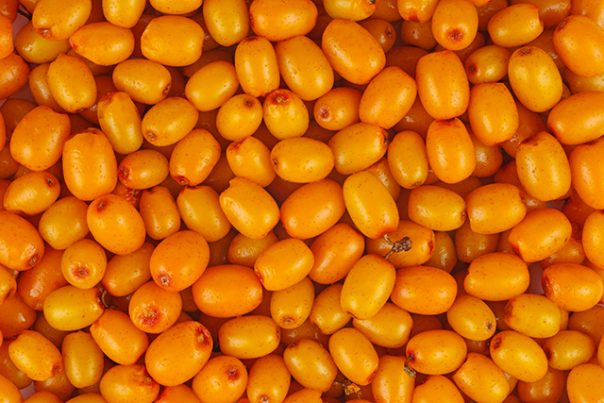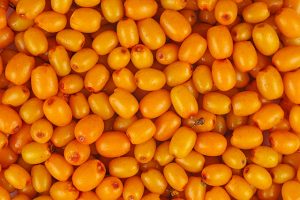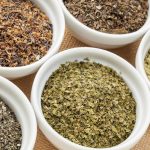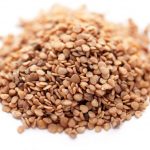- Herbs.news
- Fresh.news
- SuperFoodsnews.com
Buckthorn – sources, health benefits, nutrients, uses and constituents at NaturalPedia.com
Tuesday, August 15, 2017 by Earl Garcia
http://www.naturalnewsherbs.com/2017-08-15-buckthorn-sources-health-benefits-nutrients-uses-and-constituents-at-naturalpedia-com.html

Buckthorn is a shrub that sheds its leaves annually and is characterized by its woody spine, oval to elliptical leaves, and small, round fruits that turn yellow when ripe. The plant is native to the Himalayan region, and thrives best in cold mountainous areas with sandy soil. The plant is now cultivated throughout the world, especially North America, China, and Russia.

List of known nutrients
Buckthorns are packed with a vast number of important compounds that boost the body’s overall health. According to an entry posted on Herbpathy.com, the constituents found in buckthorn include:
- Alpha-carotene
- Amino Acids
- Anthocyanins
- Beta-amyrin
- Beta-carotene
- Beta-sitosterols
- Bioflavonoids
- Boron
- Calcium
- Cryptoxanthin
- Eicosenioc Acid
- Erucic Acid
- Fatty Acids
- Gamma Terpinene
- Iron
- Lycopene
- Manganese
- Margaric Acid
- Oleic Acid
- Palmitic Acid
- Pectins
- Phenolic Compounds
- Phosphorus
- Phytochemicals
- Phytosterol
- Silicon
- Tannins
- Vitamin A
- Vitamin B
- Vitamin C
- Vitamin E
- Vitamin K
- Zeaxanthin
Medicinal uses for buckthorn
Buckthorn’s tasty berries are used in the treatment of many diseases. The berries are best known for their potential in cancer treatment. According to an article on the Organic Facts website, juice from buckthorn berries are found to reduce cancer and mitigate its proliferation and metastasis. Aside from this, the organic compounds found in buckthorn contain powerful antioxidant properties that counter the harmful effects of free radicals. Buckthorn berry juice is found to induce cell-cycle arrest that halts cancer cells from spreading.
Essential oils from buckthorn berries are also beneficial in maintaining a healthy cardiovascular profile. The oils are touted to reduce bad cholesterol levels and improve the body’s overall cholesterol rates. Likewise, oils taken from buckthorn berries are known to facilitate a healthy fatty acid balance in the body. Buckthorn is touted to prevent blood vessel and artery congestion and lower blood pressure levels. This, in turn, lowers the risk of developing atherosclerosis, heart attacks, and strokes.
In addition, buckthorn is notably rich in iron that promotes red blood cell production. The fruit’s high vitamin C content is found to facilitate iron absorption in the body. Likewise, the rich vitamin C supply in buckthorn is touted to fortify the immune system against a host of infections. This speeds up healing and recovery from injuries. The superfood’s ample vitamin C levels are also known to boost skin health and strengthen the bones and teeth.
Moreover, the plant is used to address a plethora of digestive system conditions. An article posted on the Home Remedies for You website noted that buckthorn is a commonly used remedy against colic, obesity, dropsy, and hemorrhoids. Likewise, the plant may alleviate diseases of the liver, gallbladder, and intestines. Aside from this, buckthorn berry juice is shown to possess anti-inflammatory properties that sooth discomfort and inflammation associated with upset stomach or gastric distress.
Furthermore, an entry on the Natural Health Techniques website notes that buckthorn can be used as a treatment to abdominal bloating, constipation, hepatitis, and intestinal parasites. The superfoods are also remarkably effective in maintaining healthy blood sugar levels and reduce the risk of harmful fluctuations in blood glucose rates. On the other hand, the high carotenoid content in buckthorns is known to lower the odds of eye diseases.
Body systems supported by buckthorn
Buckthorn is particularly beneficial to the immune system. Likewise, the superfood supports the digestive, cardiovascular, and circulatory systems. The plant also promotes the skeletal and ocular systems.
Ways to use buckthorn
Ripe buckthorn berries can be eaten fresh in order to obtain the plant’s many health benefits. The buckthorn berries’ flavor resembles that of a pineapple. Likewise, the leaves can be brewed as a potent tea to protect the body against diseases. In addition, buckthorn berries and their seeds can be pressed to obtain essential oils. According to The Alternative Daily website, berry oils are widely used as a topical treatment, while seed oils work best when consumed.
Where to learn more
Summary
Buckthorn prevents cancer, heart disease, and digestive issues.
Buckthorn staves off diabetes, infections, and eye diseases.
Buckthorn benefits the immune and cardiovascular systems.
Buckthorn helps maintain a healthy circulatory and digestive systems.
Buckhorn also supports the skeletal and ocular systems.
Sources include:
Tagged Under: Tags: Buckthorn






